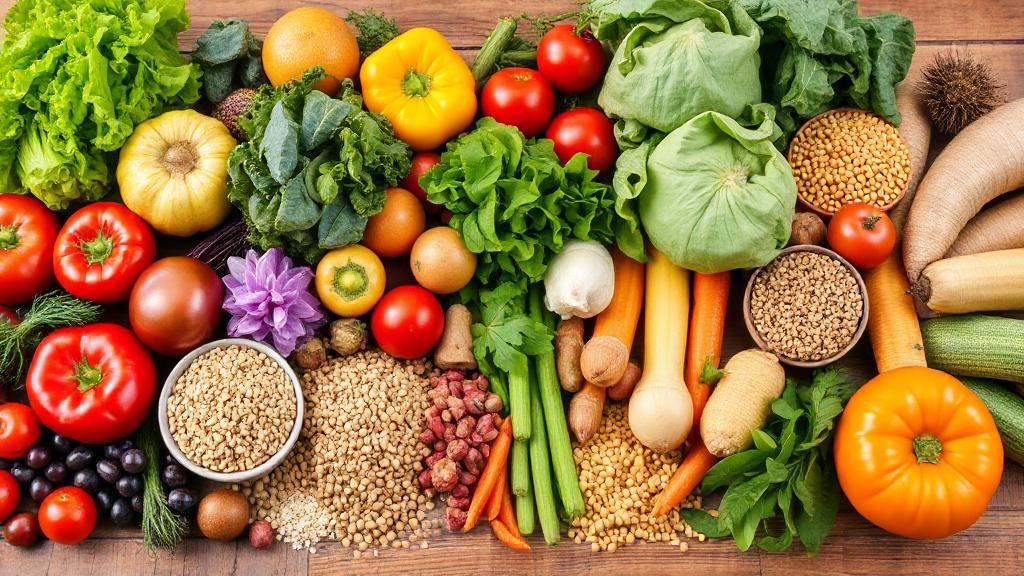Introduction
The movement toward plant-based eating is rapidly gaining traction, driven by growing awareness of its profound benefits for personal health, environmental sustainability, and animal welfare. Whether you’re considering a full transition or simply looking to add more plant-based meals to your routine, the evidence supporting this lifestyle is compelling and ever-expanding. Below, we explore the top advantages of adopting a plant-based diet, practical tips for getting started, and resources to help you on your journey.
Health Benefits of a Plant-Based Diet
Improved Heart Health
A plant-based diet is strongly associated with better cardiovascular health. Numerous studies, including those by the American Heart Association, show that diets rich in fruits, vegetables, whole grains, and legumes can:
- Lower blood pressure
- Reduce LDL (“bad”) cholesterol
- Decrease the risk of heart disease and stroke
These benefits are largely attributed to the high fiber, antioxidant, and phytonutrient content of plant foods, as well as the absence of saturated fats found in many animal products. For more on naturally lowering blood pressure, see natural ways to lower blood pressure without medication.
Weight Management and Healthy Metabolism
Plant-based foods are typically lower in calories and higher in fiber, which promotes satiety and helps prevent overeating. Research published in the Journal of General Internal Medicine and Harvard T.H. Chan School of Public Health found that individuals following plant-based diets tend to have lower body mass indexes (BMIs) and experience easier weight management.
“The fiber in plant foods creates a feeling of fullness that helps prevent overeating, while the absence of highly processed foods naturally reduces consumption of empty calories.”
— Dr. Michael Greger, NutritionFacts.org
Lower Risk of Chronic Diseases
A well-planned plant-based diet can reduce the risk of several chronic illnesses:
- Type 2 Diabetes: High fiber intake improves insulin sensitivity and blood sugar regulation.
- Certain Cancers: Antioxidants and phytochemicals in plant foods may lower the risk of cancers, especially colorectal, breast, and prostate cancers.
- Hypertension: Potassium and magnesium in plant foods help regulate blood pressure.
For more on reducing inflammation and chronic disease risk, see effective strategies to reduce inflammation naturally.
Improved Digestion and Gut Health
Plant-based diets are naturally high in dietary fiber, which is essential for healthy digestion. Fiber supports regular bowel movements, feeds beneficial gut bacteria, and may reduce the risk of digestive disorders. For more on gut health, explore top probiotics for improving gut health.
Increased Energy and Vitality
Many people report feeling more energetic and vibrant after transitioning to a plant-based diet. This can be attributed to the abundance of vitamins, minerals, and antioxidants in plant foods. For a deeper dive, see top vitamins that boost energy levels naturally.
Environmental Sustainability
Adopting a plant-based diet is one of the most effective ways to reduce your environmental footprint.
Reduced Greenhouse Gas Emissions
Animal agriculture is responsible for approximately 14.5% of global greenhouse gas emissions (FAO). Shifting toward plant-based foods can drastically cut these emissions. A 2023 Oxford University study found that switching to a plant-based diet could reduce your food-related carbon footprint by up to 73%.
Conservation of Water and Land Resources
Producing animal products requires significantly more water and land than growing plant-based foods. For example, it takes about 1,000 gallons of water to produce one pound of beef, compared to only 25 gallons for one pound of wheat. Plant-based diets also promote soil health and reduce deforestation, supporting biodiversity (UNEP).
Ethical and Animal Welfare Considerations
For many, the decision to go plant-based is rooted in compassion for animals. Industrial animal agriculture often involves practices that raise ethical concerns. By reducing or eliminating animal products, you help decrease the demand for factory farming and align your food choices with compassionate values. Organizations like PETA and The Vegan Society provide more information on the ethical benefits of plant-based diets.
Nutritional Considerations
A well-planned plant-based diet can provide all the nutrients your body needs. Key nutrients to focus on include:
- Protein: Lentils, beans, tofu, tempeh, quinoa, nuts, and seeds
- Iron: Dark leafy greens, beans, lentils (pair with vitamin C-rich foods for better absorption)
- Calcium: Fortified plant milks, dark leafy greens, tofu
- Vitamin B12: Fortified foods or supplements (since B12 is not naturally found in plants)
- Omega-3 fatty acids: Flaxseeds, chia seeds, walnuts
For more on detoxification and nutrient absorption, see natural ways to detox your body safely and effectively.
Sample Plant-Based Meal Plan
For more recipe ideas, visit Oh She Glows or The Full Helping.
Getting Started: Practical Tips
Transitioning to a plant-based diet doesn’t have to happen overnight. Here are some strategies:
- Start Small: Try one plant-based meal a day or designate a “Meatless Monday.”
- Focus on Addition, Not Subtraction: Add more fruits, vegetables, legumes, and whole grains to your meals.
- Explore New Flavors: Experiment with international cuisines and plant-based versions of familiar favorites.
- Educate Yourself: Use resources like Forks Over Knives and NutritionFacts.org for guidance.
- Plan Ahead: Meal planning helps ensure nutritional balance and makes it easier to stick to your goals.
- Read Labels: Especially important for processed foods to avoid hidden animal products.
For tips on improving sleep and overall wellness, see effective strategies to improve your sleep quality.
The Takeaway
Adopting a plant-based diet offers a powerful trifecta of benefits: improved personal health, a more sustainable planet, and a compassionate approach to animal welfare. Whether you choose to go fully plant-based or simply incorporate more plant-derived meals into your routine, the positive impacts are undeniable. Every plant-forward meal is a step toward a healthier, more sustainable future.
Ready to take the first step? Explore plant-based recipes and meal plans to kickstart your journey today!
